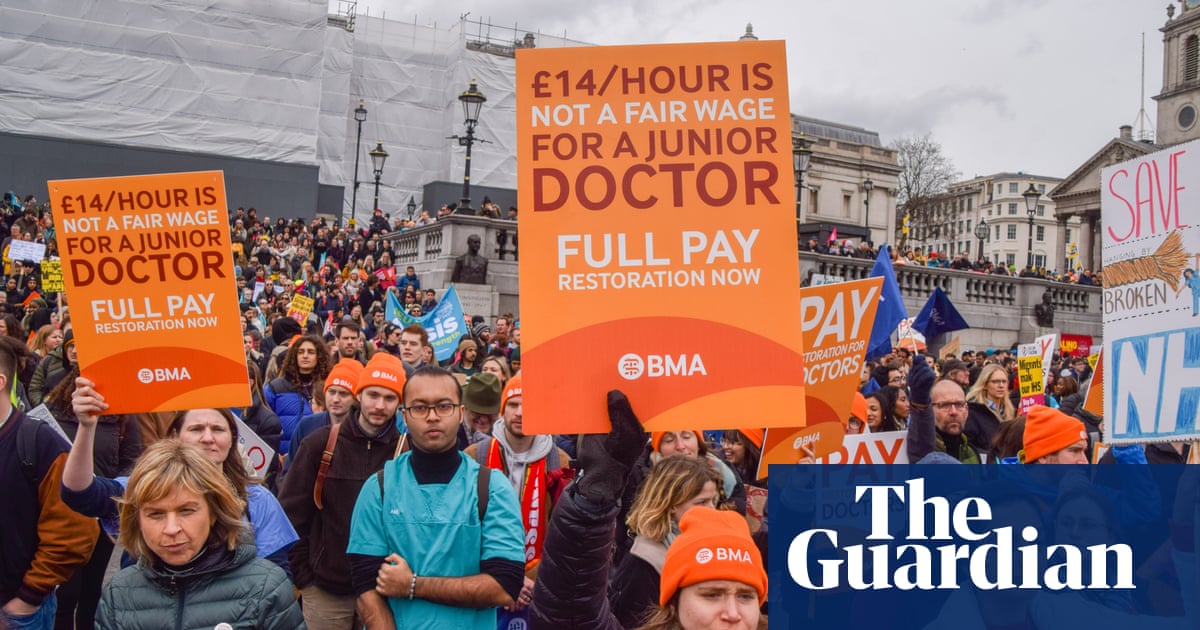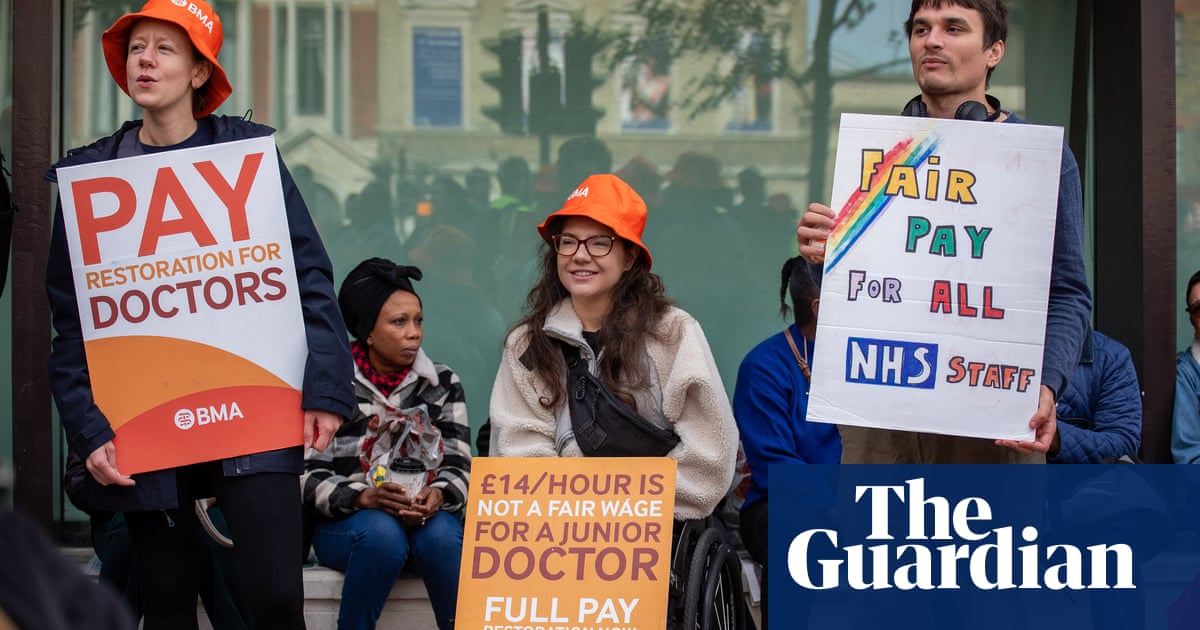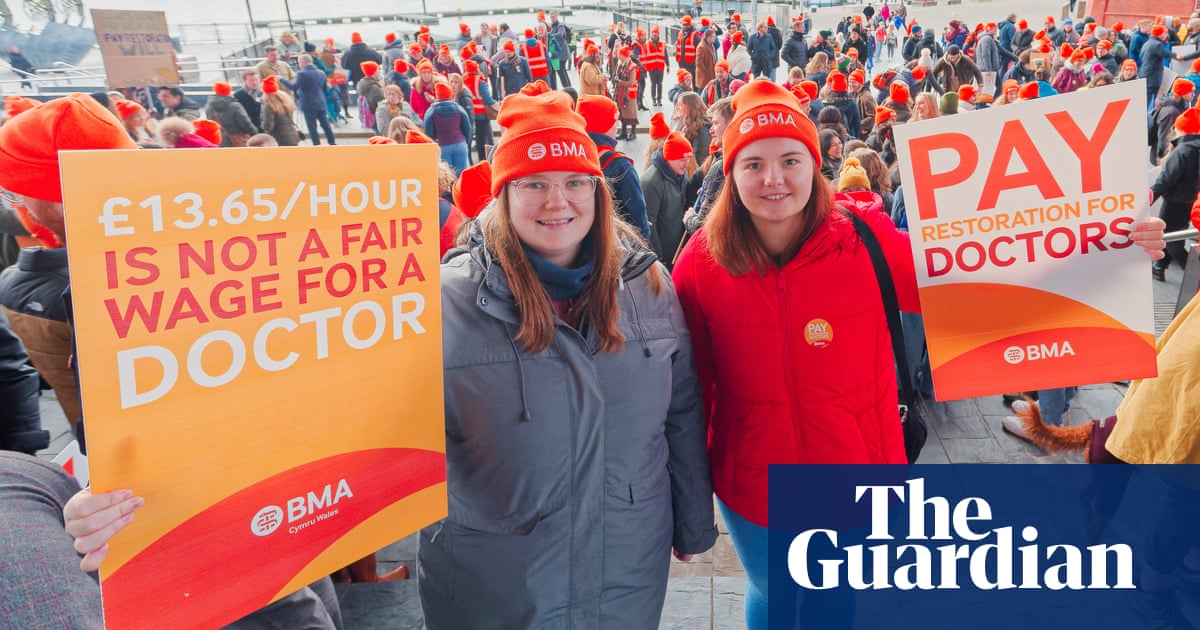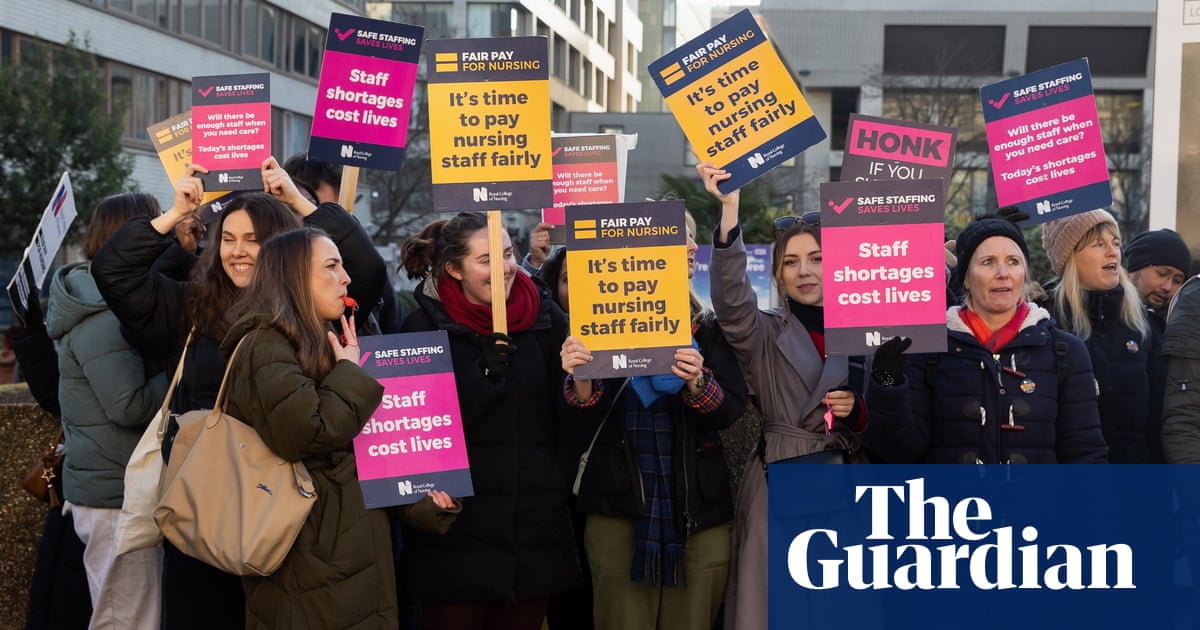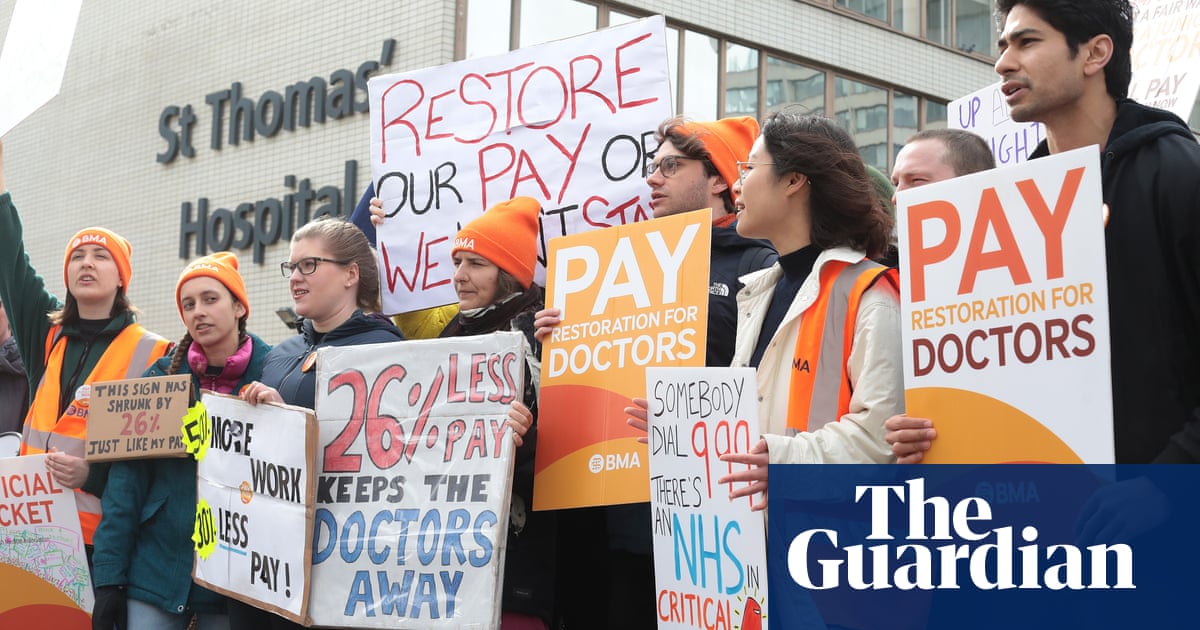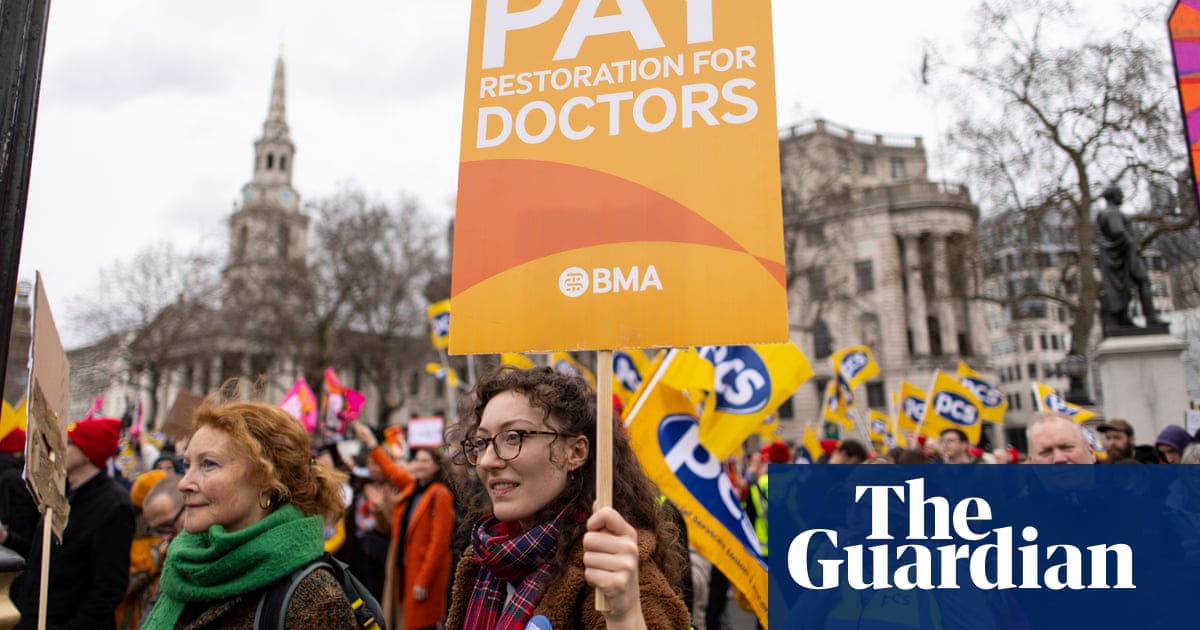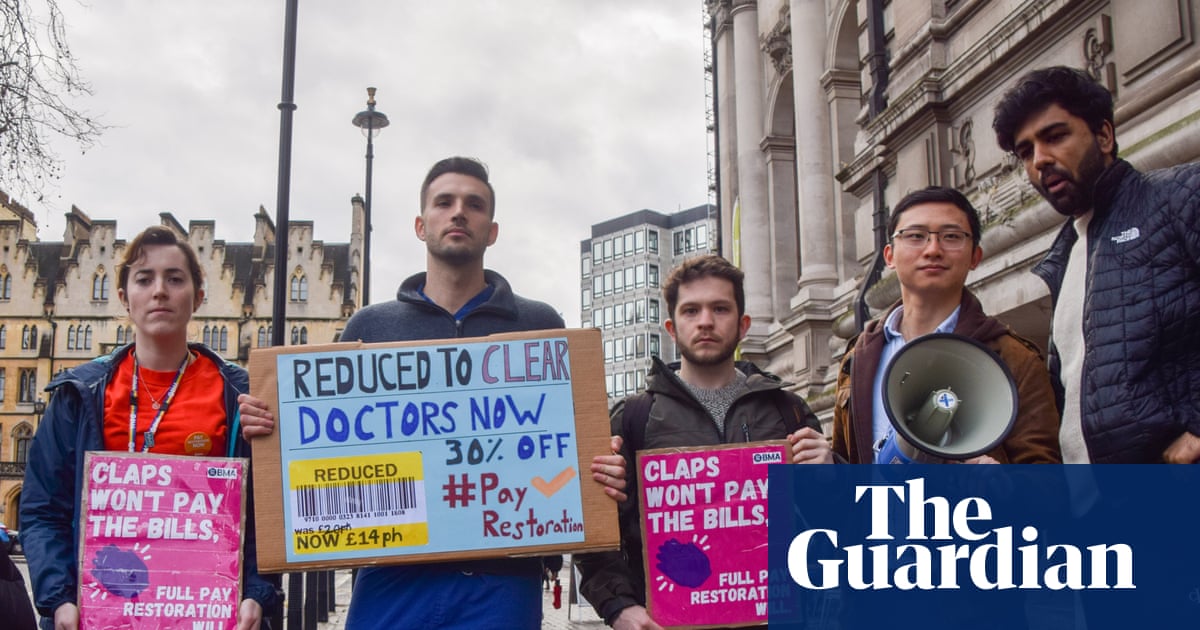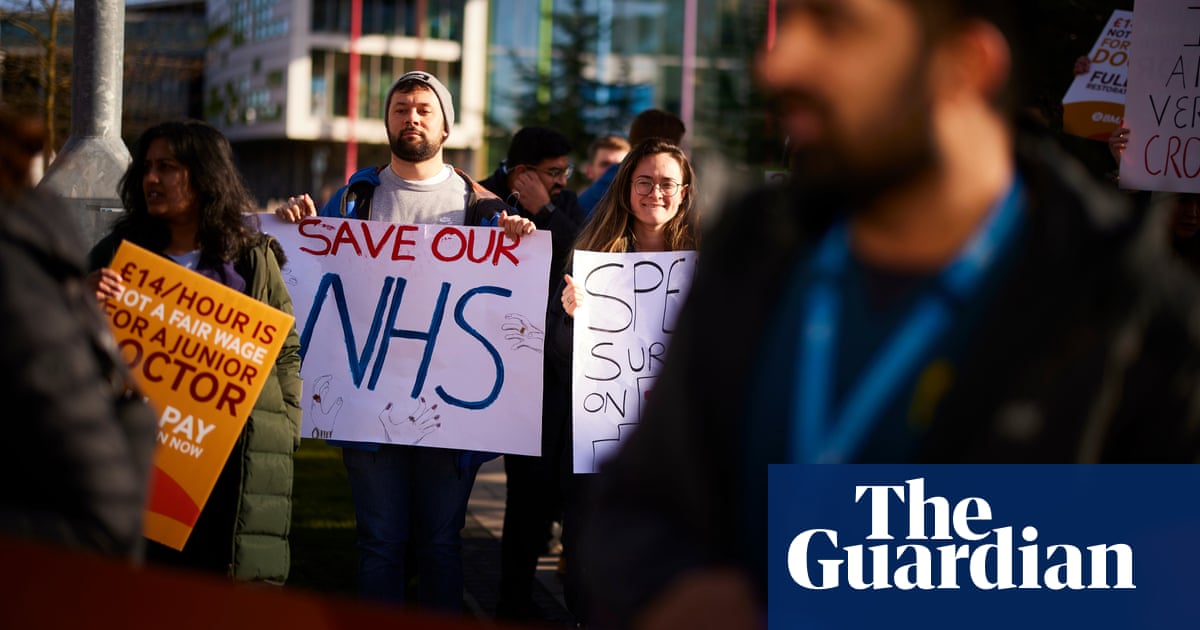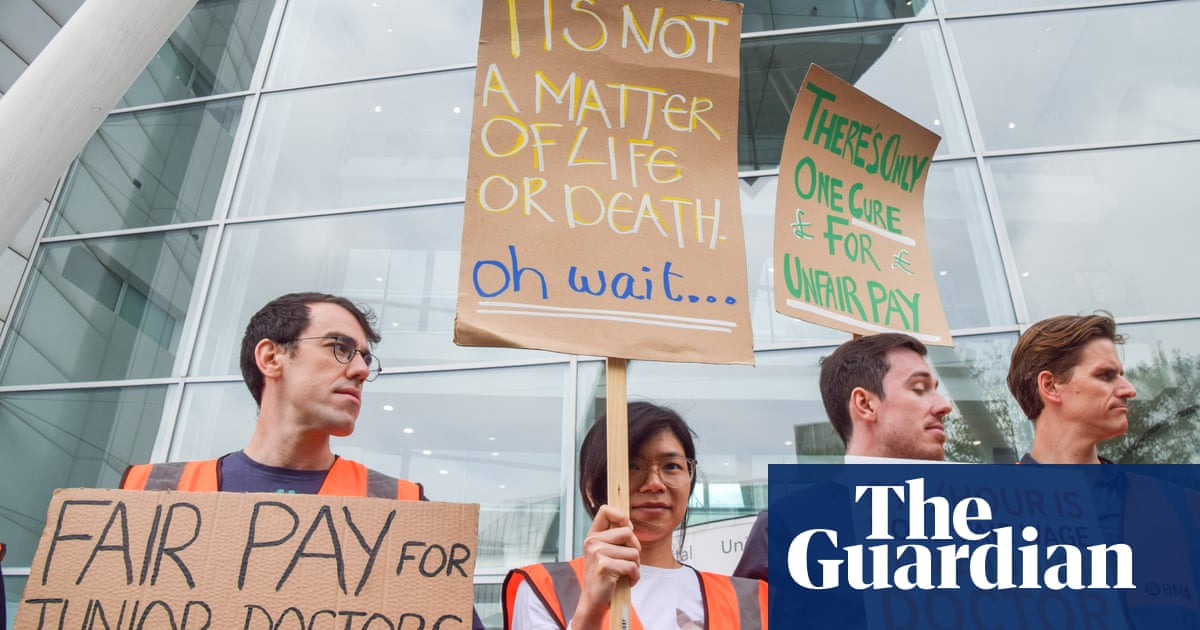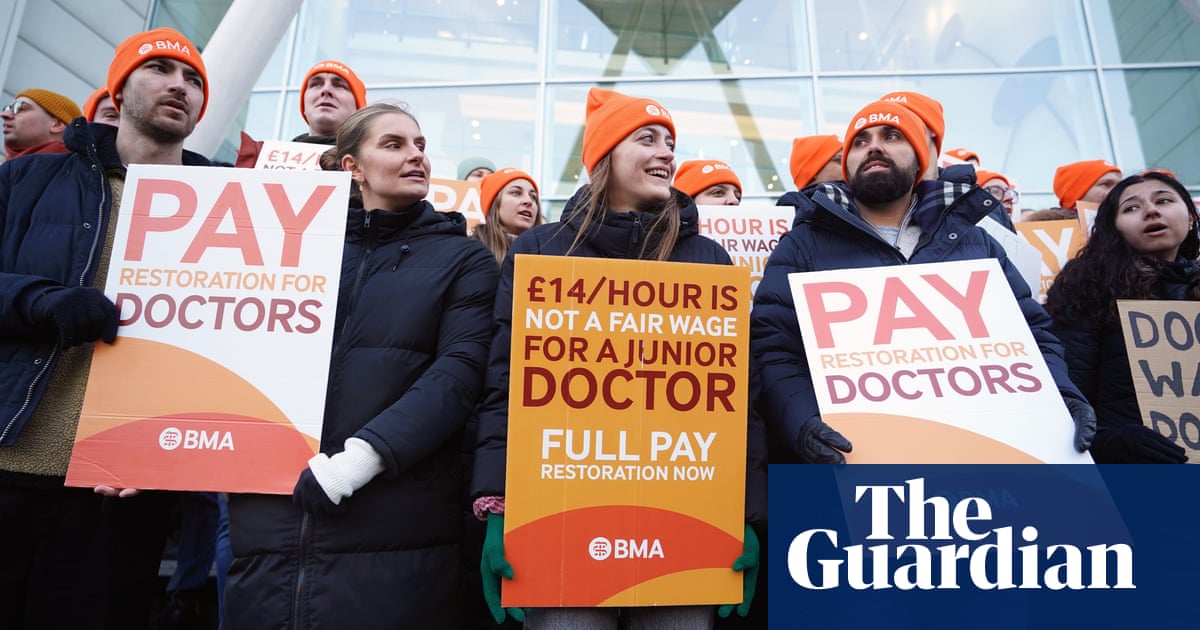
More than 100,000 patients in England face having their NHS care cancelled this month after junior doctors announced a fresh wave of strike action.
Health leaders expressed alarm, warning the five-day walkout would jeopardise all efforts to tackle the record waiting list and push other services to “breaking point”.
The development will pile renewed pressure on Rishi Sunak, who has been accused of holding up a deal over pay, to urgently resolve the row.
“I think the public will be frustrated, bordering on angry, now with the prime minister for letting this drag on for so long,” the Labour leader, Sir Keir Starmer, said on Friday after talks between the junior doctors’ union and the government broke down again.
Ministers, health officials and representatives from the British Medical Association (BMA) had been locked in negotiations for weeks since last month’s record six-day stoppage, trying to find a resolution to the pay dispute.
But the Guardian understands a last-ditch meeting on Thursday between Victoria Atkins, the health secretary, and the BMA resulted in yet another standoff.
The BMA said the government had “failed to meet the deadline to put an improved pay offer on the table” and announced another five days of strikes this month.
It is the 10th time junior doctors have staged industrial action since March last year. Thousands will strike from 7am on 24 February to 11.59pm on 28 February.
Junior doctor members of the Hospital Consultants and Specialists Association (HCSA) will walk out during the same period. The BMA has also not ruled out further strike action.
In a statement, BMA junior doctors committee co-chairs Dr Robert Laurenson and Dr Vivek Trivedi said the “glacial speed of progress” over pay with the government had been “frustrating and incomprehensible”.
They added that they “remain willing” to restart talks and cancel this month’s strikes “if significant progress is made” and a “credible offer” is put forward.
Atkins, meanwhile, said the announcement of fresh action did not “signal that they are ready to be reasonable” and was “not in the spirit of constructive dialogue”.
“To make progress I ask the junior doctors committee to cancel their action and come back to the table to find a way forward for patients and our NHS.”
The decision was announced just a day after the latest grim NHS figures revealed that 7.6m health treatments were waiting to be carried out in England at the end of December, relating to 6.37 million patients.
Sir Julian Hartley, the chief executive of NHS Providers, said the strikes would be “another body blow” for NHS services already stretched to the limit.
“Seventy days of industrial action across the NHS in England since December 2022, costing the NHS around £3bn and delaying more than 1.4m routine appointments and procedures, have added to pressure throughout the NHS,” he added.
“Patients having to wait even longer for the care they need is a huge concern.”
Last month’s six-day strike was the longest to hit the health service since it was founded in 1948.
A total of 113,779 appointments were cancelled in England – almost 19,000 a day. That suggests another 95,000 face the axe ahead of the fresh strikes this month.
But the true number of appointments postponed will likely be thousands higher in reality, NHS sources said, because many hospitals scheduled less care on days when junior doctors would be on strike.
The fresh wave of industrial action comes amid increasing concern about the deteriorating health of many of those stuck on waiting lists.
The Guardian revealed last month a warning from health officials that thousands of cancer patients could die early if ministers and junior doctors did not urgently resolve their bitter pay row.
On Thursday, the latest performance statistics showed more than a third of cancer patients in England were facing potentially deadly delays, with thousands of people forced to wait months to begin treatment.
Matthew Taylor, the chief executive of the NHS Confederation, said: “The last thing our members wanted was more industrial action, which jeopardises all their attempts to tackle waiting lists for routine hospital care and keep urgent and emergency care from buckling under the strain of winter pressures. NHS leaders will be worried that further walkouts could push services to breaking point.”
Earlier this week Rishi Sunak was accused of personally holding up a deal to end the doctors’ strikes, despite warnings from the health department and NHS England that waiting lists would continue to soar unless the dispute was resolved.
Sources said it had been made “abundantly and repeatedly” clear to the prime minister that there would be no progress on his pledge to drive down NHS waiting lists until a deal was struck. The government said the reports were untrue.
In the wake of Friday’s announcement of further strike action, shadow health secretary Wes Streeting accused Sunak of “personally blocking a deal with the junior doctors”.
“He bears responsibility for the cancelled operations and appointments desperate patients will face once again,” he added. “This can’t go on.”
Earlier this week, Sunak admitted he had failed on his pledge to cut NHS waiting lists after months of strikes by NHS staff. Last year he made cutting the number of patients waiting for treatment one of the five key priorities of his leadership.
The alternative manifesto: Securing the future of the NHS




